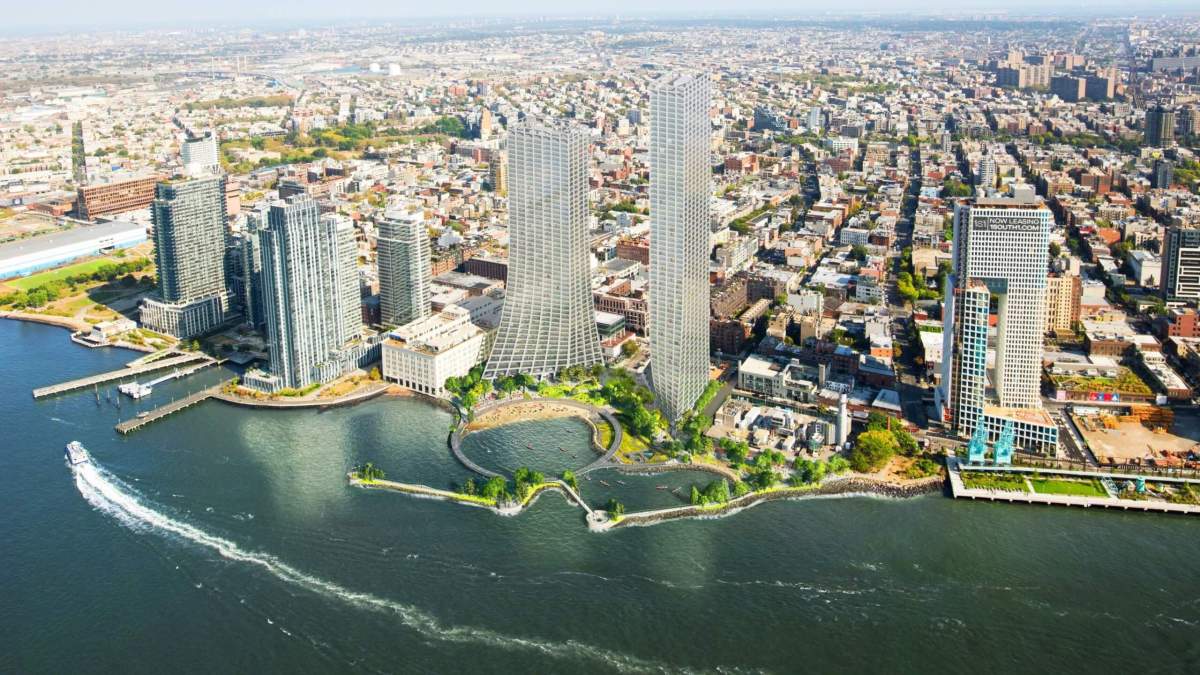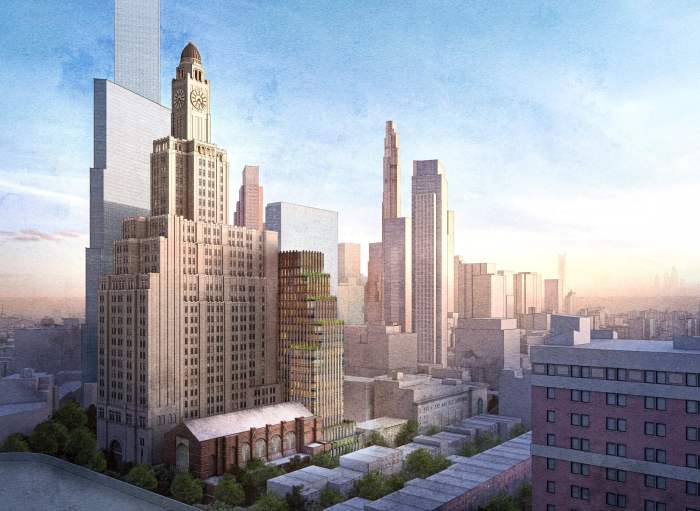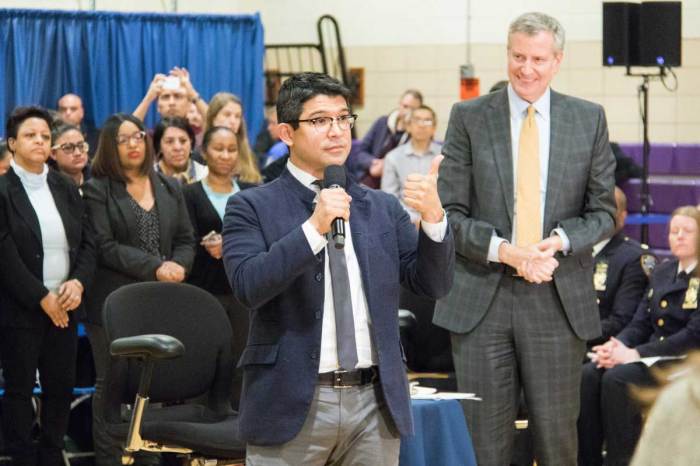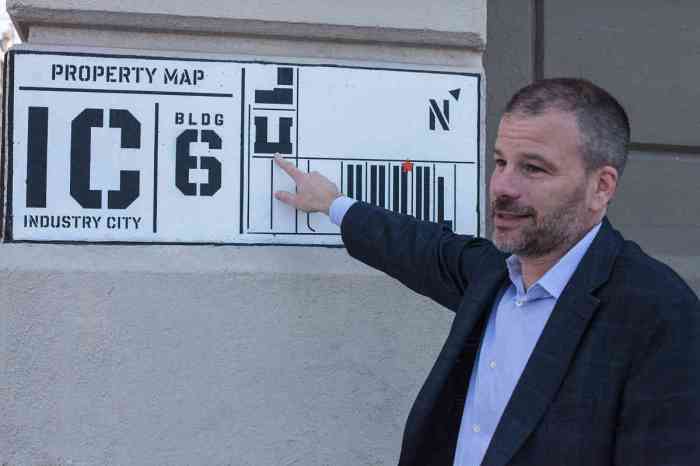The City Council voted unanimously on Wednesday to approve River Ring, a massive new development on the Williamsburg waterfront, effectively bringing to a close the city’s lengthy land use review process and clearing the path for the two towers to move ahead.
Developed by Two Trees Management, the company who redeveloped the former site of the Domino Sugar Refinery just south of the future River Ring site, the project will bring two enormous mixed-use towers — the southern tower, reaching 750 feet, will become the second-tallest in the borough — with more than 1,050 new apartments, 263 of which would be permanently affordable, office and retail space, and a publicly accessible plaza and large public waterfront park.
Two Trees first started pitching River Ring to the community in late 2019, after purchasing the River Street lot, which used to house a Con Edison storage facility, for $150 million. Private meetings with residents led to contentious meetings at Community Board 1 before the project was shelved as the coronavirus pandemic ramped up.
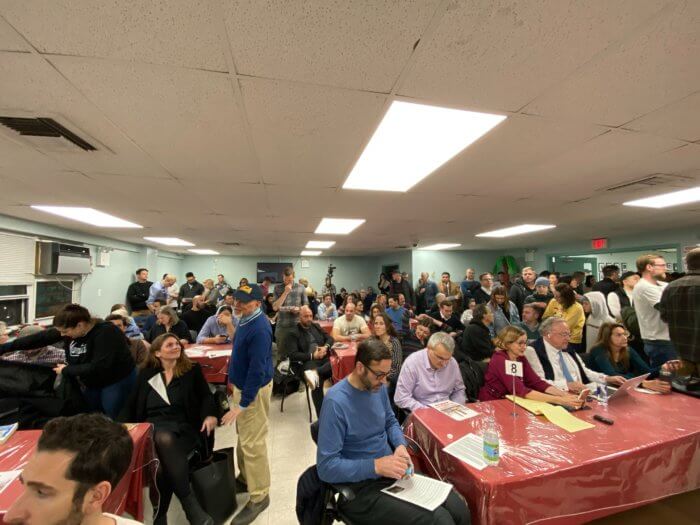
The project started winding through the city’s lengthy Uniform Land Use Review Process in August, when the City Planning Commission certified their application. CB1 held a packed public hearing on Sept. 1, drawing just as many supporters as detractors, and ultimately voted to approve the project with modifications after a six-hour meeting. Borough President Eric Adasm followed suit, issuing a long list of potential alterations, though both he and the community board’s votes are purely advisory.
Last week, Councilmember Stephen Levin, who represents the district where River Ring is set to be built, announced a new slate of agreements reached with Two Trees — including contributing $31 million into a fund to construct affordable senior housing off-site, within Community Board 1, subsidized training for 2,000 construction jobs and 500 permanent jobs on-site, and $1.7 million for projects within the community.
“We are grateful to the leadership of Council Member Levin for working with the community and Two Trees in maximizing affordability, local access to jobs with a path to $40-$50,000 salaries, and investments in sustainable and healthy community spaces for all residents,” said a coalition of three local nonprofits, El Puente, Los Sures, and St. Nicks Alliance, in a statement. “We look forward to working with Two Trees to ensure that the vision for River Ring as a resilient, sustainable project that prioritizes our Williamsburg community and its long-term needs of sustainable equity is fully realized.”
The coalition wrote a letter to Two Trees in August, voicing their support for the project if the developers were willing to work alongside the coalition to increase affordability, climate resiliency, and the creation of local jobs.
Over time, the $31 million senior housing fund, which will be managed by nonprofit JOE NYC and distributed to local nonprofits to buy land, will be leveraged into at least $150 million, Levin said last week.
That will happen when those nonprofits, once in possession of land and money, are able to access city and state funds earmarked for senior housing, explained Dave Lombino, Managing Director of External Affairs at Two Trees. Those funds are needed both to construct the buildings and to manage them once they are operational, to make up for the gap left by subsidized rents.
“The main obstacle to accessing these funds in a neighborhood like Williamsburg is land,” Lombino said. “And that’s where our resources here and this fund that we’re creating will help bridge the gap.”
Regulations restrict senior housing from being incorporated into mixed-use buildings that also include affordable housing because of the specific needs of residents, he said.
The $1.7 million community fund was planned and negotiated with Levin, Lombino said. At least two projects — retrofitting existing buildings to meet new environmental standards, and a parks and open space study in Williamsburg — are planned.
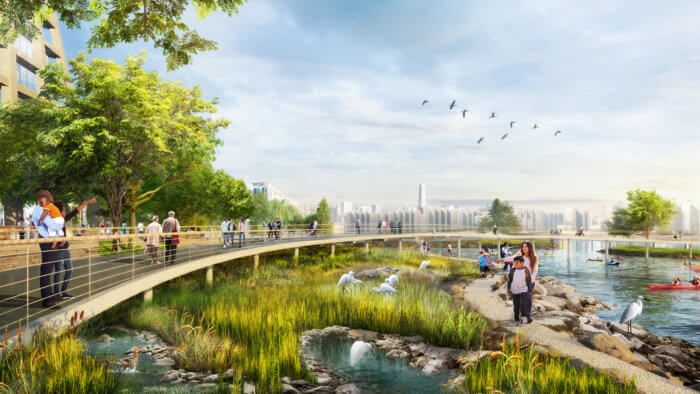
Area nonprofits seeking to “meet or exceed” green standards will be able to access the money to upgrade buildings, Lombino said, whether they’re existing affordable housing buildings, churches, or other nonprofit structures.
The open space study will also be outsourced to local nonprofits, Lombino said. In addition to existing or planned parks in the neighborhood, there’s plenty of city-owned space that could be better utilized.
“I think this study, the idea of this study is that you can bring in a top architect to take a big picture view and help sort of formulate a blueprint for the next administration, for the next councilmembers, as they seek capital funding for the area in the future,” he said.
The council also voted Wednesday to approve a bill banning gas hookups in new construction starting in December 2023, when the ban will go into effect for buildings seven stories and under, or 2027, for taller developments.
River Ring is expected to be all-electric, with its own “microgrid” that will generate and store power on-site rather than relying on the municipal grid. Two Trees has a prototype power grid in Gowanus.
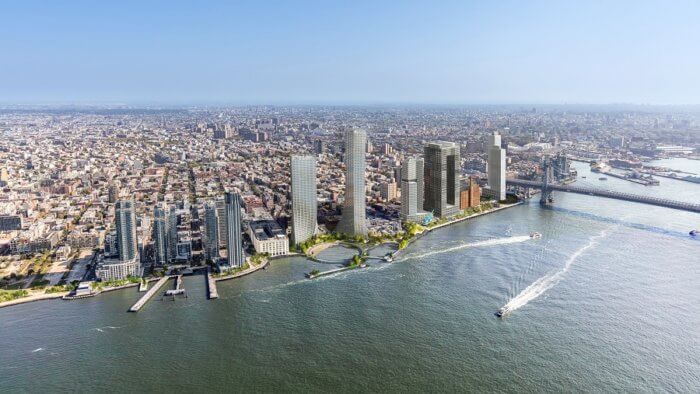
“We’re committed to being innovative and keeping gas out — these buildings won’t be run on natural gas,” Lombino said. “I think that’s a significant achievement, something that came up at the community board level. It’s something we’re excited about implementing.”
The technology isn’t quite up to par right now, he said, but with a few years to go before Two Trees breaks ground, he expects it to catch up before they’re up and running.
A number of Williamsburg residents have remained vocally opposed to the project — while CB1 ended up voting “yes, with conditions,” it was not without a fair amount of confusion and discussion about a “no” vote, and more than 8,000 people over three years have signed a petition started by the local group Sustainable Williamsburg, which cites concerns about density, lack of transit, and tax breaks for Two Trees.
Mayor Bill de Blasio now has the ability to veto the vote within five days, but is unlikely to do so. The approval marked Levin’s last land use project in the Council before his term ends in January and Councilmember-elect Lincoln Restler takes his place representing District 33.


